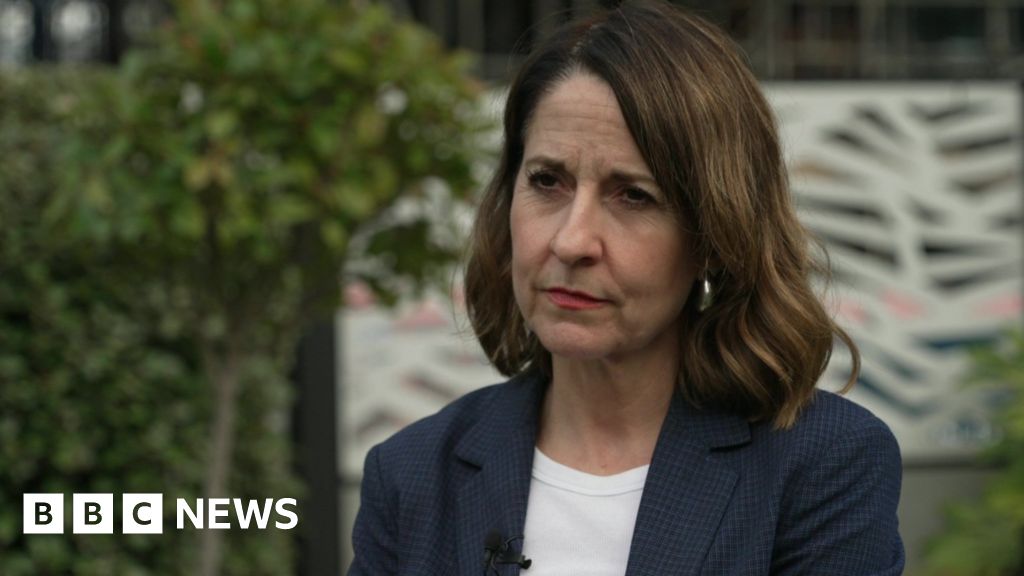 BBC
BBCJob coaches will visit seriously ill patients on mental health wards to try to get them back to work, the government has said.
Trials of employment advisers giving CV and interview advice in hospitals produced “dramatic results”, Work and Pensions Secretary Liz Kendall told the BBC.
She said a wider roll out would form part of her drive to shrink the UK’s annual disability and incapacity benefits bill. But disability rights campaigners have expressed concerns about the proposals.
The cost of these benefits is projected to surge almost a third in the next four to five years, according to the Institute for Fiscal Studies.
It predicted the Department for Work and Pensions (DWP) would spend £63bn by 2028-29, a jump from £48bn for 2023-24.
“I want to see those costs coming down, because I want to have people able to work, to get on in their work, which is good for them,” Kendall told BBC News in an exclusive interview.
She indicated some people will lose their benefits, saying the “benefit system can have a real impact on whether you incentivise or disincentivise work”.
Kendall praised projects in Leicester and at the Maudsley Hospital in Camberwell, in south-east London, which offered employment support – such as training on CV writing and interviews – to seriously mentally ill people, including on hospital wards.
“This is for people with serious mental health problems,” she said. “And the results of getting people into work have been dramatic, and the evidence clearly shows that it is better for their mental health.”
She added: “We really need to focus on putting those employment advisers into our mental health services. It is better for people. It is better for the economy. We just have to think in a different way.”
The DWP is preparing a new employment white paper, for release around the time of the Budget and spending review later this month, which will outline its plans for reform.
However, Disability Rights UK has raised some concerns with the proposed policies.
It criticised the DWP’s initial July report on the proposals for making no reference to the Equality Act, flexible working or the access to work scheme and only one reference to reasonable adjustments.
‘We are really struggling with health problems’
Kendall said she believed British society had become “sicker” and the UK was “the only G7 country whose employment rate has not gone back to pre-pandemic levels”.
According to official figures released yesterday for the period from June to August, 21.8% of people are considered “economically inactive”, meaning they are aged between 16 to 64 years old, not in work or looking for a job.
The figure has fallen marginally from the May to July period, but it remains at close to a decade-high after rising during the pandemic.
“There is clear evidence we are really struggling with health problems,” Kendall added.
“I don’t think £30bn extra spending on sickness and disability benefits is because people are feeling ‘a little bit bluesy’,” a reference to the words of her predecessor Mel Stride.
She also urged employers to “think differently” about workers with mental health conditions to offer flexibility to support and retain workers with health problems.
Kendall also told the BBC job centres would be transformed by merging them with the national careers service and using AI.
She suggested the face-to-face work would remain for the people “who really need it”, but “more personalised support using AI” for others, expanding on an idea introduced by her predecessor Stride.
She also suggested that giving powers to regional mayors would help match unemployed people more closely with local vacancies.
This echoes calls from Manchester Mayor Andy Burnham to hand control of job centres over to his regional government.

